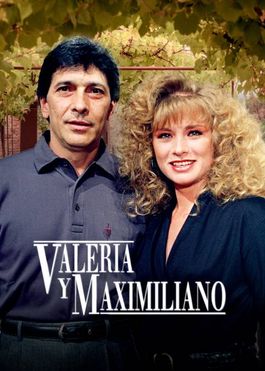
María Victoria Eugenia Guadalupe Martínez del Río Moreno-Ruffo is a Mexican actress notable for her roles in telenovelas.

Arturo Peniche is a Mexican telenovela actor who became popular in Latin America during the 1990s. He is the brother of actor Flavio Peniche, who appears in the telenovela La Traición.

Heridas de amor is a Mexican telenovela produced by Roberto Hernández Vázquez for Televisa. It is a remake of the telenovela Valeria y Maximiliano. It premiered on April 3, 2006 and ended on September 22, 2006.

Amor en silencio is a Mexican telenovela produced by Carla Estrada for Televisa in 1988. Its first broadcast was in Mexico in 1988 and then made its debut in Latin America, Europe, Asia and, in a unique situation, it was broadcast in the United States by Telemundo during primetime. It can be said that this is the only Televisa telenovela that was never shown on Univision. Back then Telemundo got the rights to Amor en silencio and Pasión y poder, the latter one got picked up by Univision in 1993 as daytime programming.

El diario de Daniela is a Mexican child telenovela produced by Rosy Ocampo for Televisa in 1998.

Lazos de amor is a Mexican telenovela produced by Carla Estrada for Televisa in 1995. It stars Lucero and Luis José Santander.

Salomé is a Mexican telenovela produced by Juan Osorio for Televisa in 2001. It is the third remake of La Colorina.

Cuando llega el amor is a Mexican telenovela produced by Carla Estrada for Televisa in 1989.
Alondra is a Mexican telenovela produced by Carla Estrada for Televisa in 1995. The story based on Casandra created by Yolanda Vargas Dulché. For personal reasons Yolanda Vargas Dulché changed the name of Casandra to Alondra in honor of her granddaughter Alondra de la Parra. It stars Ana Colchero, Ernesto Laguardia and Gonzalo Vega.

Leticia Calderón is a Mexican actress.

La Dueña is a Mexican telenovela produced by Florinda Meza for Televisa in 1995.
Principessa is a Mexican telenovela produced by Valentín Pimstein for Televisa in 1984. The telenovela about the adventures and misadventures of a group of friends Paola, Fernanda, Marisela and Adriana working as stylists in the salon "Princess".

Wild at Heart is a Mexican telenovela produced by Nathalie Lartilleux for Televisa. It is a remake of the 1994 Mexican telenovela Marimar.

Valeria y Maximiliano is a Mexican telenovela produced by Carlos Sotomayor for Televisa in 1991.
Bianca Vidal is a Mexican telenovela produced by Valentín Pimstein for Televisa in 1982. Bianca Vidal was based on the soap opera María Salomé, original of Inés Rodena which was then elongated by Sacrificio de mujer from the same author.

La casa al final de la calle is a Mexican telenovela produced by Juan Osorio for Televisa in 1989.
La gloria y el infierno is a Mexican telenovela produced by Gonzalo Martínez Ortega and Juan Osorio for Televisa in 1986. It is based on the novela Duelo al so by the American writer Niven Busch. It starred Ofelia Medina, Héctor Bonilla, Fernando Balzaretti and Saby Kamalich.
Monte calvario is a Mexican telenovela produced by Valentín Pimstein and Angelli Nesma Medina for Televisa in 1986. It is an original story Delia Fiallo of and directed by Beatriz Sheridan.

A que no me dejas, formerly known as A que no me dejas, corazón, is a Mexican telenovela produced by Carlos Moreno for Televisa. It is a remake of the Mexican telenovela Amor en silencio, produced in 1988.
Canción de amor is a Mexican telenovela directed by Alfredo Gurrola and produced by Luis de Llano Macedo for Televisa in 1996. It premiered on Canal de las Estrellas on Monday, May 13, 1996, and ended on Friday, September 13, 1996.














